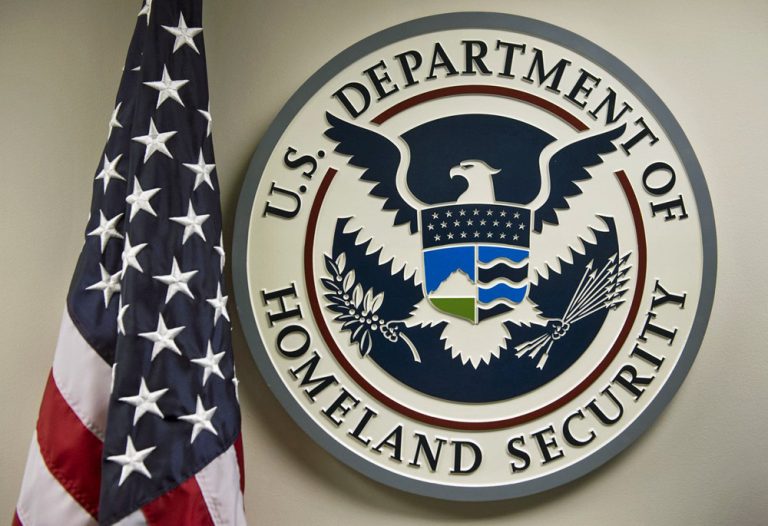

WASHINGTON — The Department of Homeland Security (DHS) announced on Tuesday a proposed rule that would limit discretionary work authorization for aliens who have final orders of removal and who have been temporarily released from DHS custody on an order of supervision (OSUP).
The rule would align the issuance of discretionary employment authorization with the administration’s stated priorities to protect U.S. workers and strengthen immigration enforcement.
Orders of supervision allow DHS to place conditions on and monitor aliens with final orders of removal who have been temporarily released from DHS custody until DHS has the travel documents necessary to remove the alien from the United States.
The OSUP contains several conditions for release, including a requirement that aliens cooperate with efforts to procure the travel documents for removal, check-in with DHS on designated dates, and present themselves for removal once it is arranged.
“Authorizing employment benefits to aliens who have already had due process and have been ordered removed by the U.S. government undermines the rule of law and weakens DHS enforcement and removal operations,” said USCIS Deputy Director for Policy Joseph Edlow. “This effort would also remove the economic incentive for these aliens to not cooperate in the effort to obtain travel documents to return to their home countries.”
Under current regulations, an alien who has a final order of removal and who is temporarily released from DHS custody on an OSUP is generally eligible for an employment authorization document (EAD).
This creates a disincentive for the alien to depart or cooperate with their home country to obtain travel documents to depart the United States.
These aliens have used substantial government resources throughout the removal process and have ultimately been ordered removed from the United States by an immigration judge.
Under the proposed rule, only a small subset of these aliens who can demonstrate that DHS has determined that their removal from the United States is impracticable would remain eligible for discretionary employment authorization.
DHS will require such aliens to establish economic necessity to work, consistent with other discretionary EAD categories, and USCIS will assess whether they warrant a favorable exercise of discretion for a grant of employment authorization.
In addition, aliens who qualify for discretionary employment authorization under the proposed rule and subsequently seek to renew their work authorization would also be required to establish that their employer participates in E-Verify and is in good standing in the program.
The proposed rule also would limit the validity period of the employment authorization for aliens released on an OSUP to one year, regardless of whether it is an initial or a renewal employment authorization.
When a final rule is published, the changes made by the rule will apply to initial and renewal applications filed on or after the final rule’s effective date.
Aliens who are employment-authorized prior to the final rule’s effective date will remain employment authorized until the expiration date on their EAD unless the EAD is terminated or revoked.
The final rule also would not affect applications to replace EADs granted before the final rule’s effective date.
The San Marcos City Council received a presentation on the Sidewalk Maintenance and Gap Infill…
The San Marcos River Rollers have skated through obstacles after taking a two-year break during…
San Marcos Corridor News has been reporting on the incredible communities in the Hays County…
Visitors won't be able to swim in the crystal clear waters of the Jacobs Well Natural…
Looking to adopt or foster animals from the local shelter? Here are the San Marcos…
The Lone Star State leads the nation in labor-related accidents and especially workplace deaths and…
This website uses cookies.